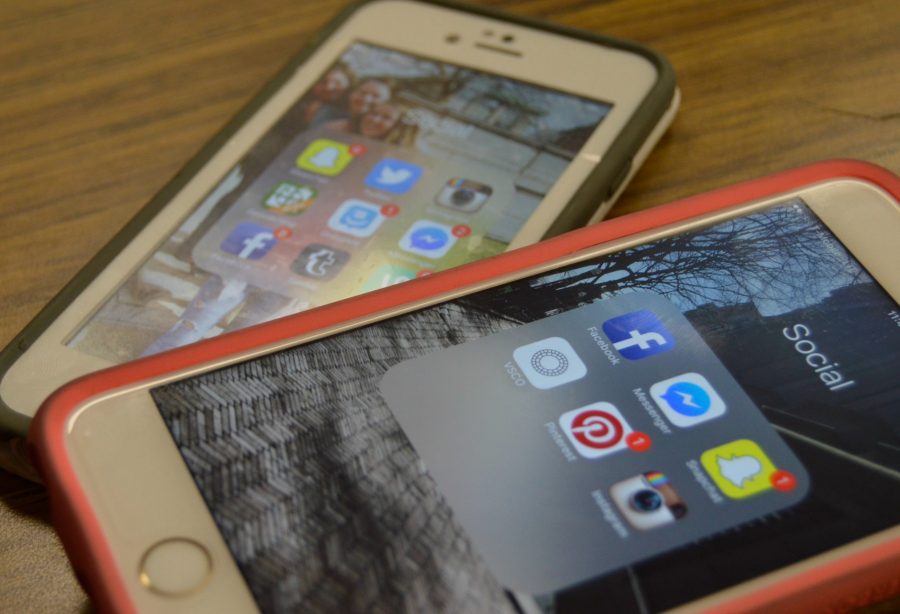If you don’t want your grandma to see it, don’t post it!
Everyone knows the feeling: you pull up Facebook on your computer and staring you in the face is that disgusting selfie from middle school that your friends dug up and “liked”, automatically putting it on everyone’s news feeds. Or, there are the embarrassing blurry party pictures that you may or may not remember, but quickly untag. As teenagers, social media has been around for most of our lives, so by now we’re used to it. Many of us don’t consider the repercussions it could have later on.
“[Social media] is definitely beneficial for a variety of reasons,” GMHS counselor Mr. Brad McAdam said, “It’s cool to be able to have people share ideas in a universal way. It gives people a voice to express things that they never would have had before. The bad side of that is all the nastiness that comes [along with it].”
According to the Society for Human Resource Management, 77% of companies in 2013 use social media during the hiring process to get a sense of applicant’s’ character. This means that nearly 4 out of every 5 employers can see those damaging pictures from parties in high school depicting your sub-par choices and not-so-legal activities.
Lauren Kane, a 2012 graduate of George Mason, decided to delete her Facebook account after leaving high school. However, she warns: “Even though I deleted my social media accounts after graduating from Mason, all of my pictures are floating around somewhere on the Internet… pressing delete on something does little to nothing in regards to it being off the Internet.”
If you want to test this, do a quick Google search of your name and see how many of your social media images pop up. One drawback of posting pictures on the Internet is that they can’t truly be removed. Once they’re there, they’re there, and can potentially be found by future employers or colleges. “If one has to question about whether or not a picture should be going online, 99% of the time it shouldn’t,” Kane said.
One of the problems with social media is that many of today’s teenagers don’t realize that pictures can resurface years later. Pictures and comments on social media are public to everyone and can be found by family members, colleges, and future employers.
“I have some pretty gross pictures from middle school but otherwise my stuff is pretty clean,” senior Annie Ferguson said. “I do worry [though]…a couple of times my parents have seen pictures I didn’t want them to see. [I think] something that may seem innocent or frivolous [now] could negatively affect your future.”
Senior Erin McMillen agreed, saying: “I usually try to censor pictures on public accounts, however I have Twitter [and Instagram accounts] that [are] private. But on my public Twitter and Facebook I try to keep all illegalities and other things that should be censored off of it.”
“I just read something recently that said a lot of colleges do look at student’s profiles,” McAdam commented. “I think students do have to be really careful with what they make public…even with comments you make [on other people’s’ stuff].”
While not all colleges will look through prospective students’ social media accounts, Forbes magazine warns that many employers will base their hiring decisions on what they see of you on social media. This makes your image on social media even more important to keep clean.
Keeping that in mind, it’s good practice that student’s pay attention to the content they publish the internet.
“I’m sure I don’t only speak for myself when I say that you don’t want somebody’s first impression of yourself to be those pictures they saw of you with questionable substances in your hands, before you’ve even had any sort of interactions with them,” Kane said. “It gives jobs and schools the opportunity to reject someone in a matter of seconds, and nobody wants to be that ‘someone’. Think about the future and the places you want to be and it’ll definitely make you think twice about the things you post.”









